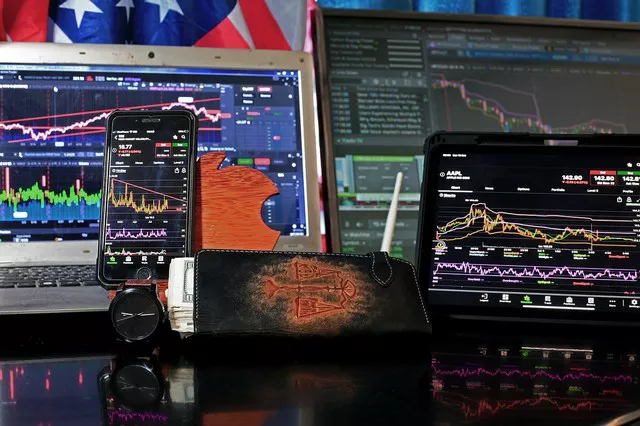In the realm of financial markets, futures trading stands as a dynamic avenue for investors seeking opportunities to speculate on the future price movements of assets. With its inherent volatility and potential for substantial gains, many individuals are drawn to the allure of futures trading as a means of generating income. However, amidst the excitement and promise, the question looms large: Can one truly live off futures trading? In exploring this inquiry, we delve into the intricacies of futures trading, examining its potential rewards, inherent risks, and the essential factors that influence success in this complex arena.
Understanding Futures Trading
Futures trading represents a derivative financial instrument where parties agree to buy or sell a specified asset at a predetermined price on a future date. Unlike traditional stock trading, which involves the direct exchange of ownership in a company, futures trading revolves around contracts based on commodities, currencies, indices, or even interest rates. These contracts enable traders to capitalize on price fluctuations in the underlying assets, with the aim of profiting from anticipated market movements.
The allure of futures trading lies in its inherent leverage, providing traders with the ability to control a more substantial position with a relatively modest initial investment. By only requiring a fraction of the contract value as margin, futures trading amplifies both potential gains and losses, making it a high-stakes endeavor that demands careful risk management and strategic decision-making.
See Also: Why are stock futures often wrong?
Risk and Reward Dynamics
The allure of futures trading lies in its potential for substantial profits within relatively short time frames. With the ability to capitalize on both upward and downward price movements, skilled traders can generate significant returns, leveraging market trends to their advantage. However, this potential for high reward is counterbalanced by the equally significant risk associated with futures trading.
The volatile nature of futures markets exposes traders to the constant threat of abrupt price swings, which can swiftly erode capital and lead to substantial losses. Moreover, the leverage inherent in futures trading amplifies the impact of market fluctuations, magnifying both gains and losses. As such, navigating the futures market requires a disciplined approach, meticulous risk management, and a thorough understanding of market dynamics.
Navigating Market Dynamics
Successful futures trading hinges on the ability to interpret market dynamics accurately and execute well-informed trading strategies. Traders must stay abreast of global economic developments, geopolitical events, and industry-specific factors that influence the prices of underlying assets. Additionally, technical analysis plays a crucial role, enabling traders to identify patterns, trends, and key support and resistance levels that inform their trading decisions.
Moreover, emotional discipline is paramount in futures trading, as impulsive reactions to market fluctuations can lead to irrational decision-making and significant losses. By maintaining a rational and disciplined approach, traders can mitigate the influence of emotions and adhere to their trading plans, thereby enhancing their prospects of success in the futures market.
Building a Sustainable Trading Strategy
Central to the prospect of living off futures trading is the development of a robust and sustainable trading strategy. A successful strategy encompasses a well-defined set of rules and criteria for entering and exiting trades, along with a clear risk management framework to protect capital from excessive losses.
Diversification also plays a crucial role in risk mitigation, as spreading investments across multiple asset classes and markets can help offset losses in one area with gains in another. Furthermore, ongoing evaluation and refinement of trading strategies are essential to adapt to evolving market conditions and optimize performance over time.
The Role of Technology
In an era defined by technological innovation, the role of technology in futures trading cannot be overstated. Advanced trading platforms provide traders with real-time market data, sophisticated charting tools, and automated trading algorithms that streamline the decision-making process and facilitate rapid execution of trades.
Additionally, the rise of algorithmic trading has transformed the landscape of futures markets, with algorithms executing trades based on predefined criteria and mathematical models. While algorithmic trading offers the potential for enhanced efficiency and profitability, it also requires a deep understanding of programming, quantitative analysis, and risk management principles.
Challenges and Considerations
While the allure of living off futures trading is undeniably appealing, it is essential to acknowledge the formidable challenges and considerations inherent in this pursuit. The unpredictable nature of futures markets, coupled with the inherent risks and complexities of trading, necessitates a cautious and prudent approach.
Moreover, futures trading demands a significant investment of time, effort, and resources to acquire the necessary knowledge, skills, and experience to succeed consistently. It is not a path suited for the faint of heart or those seeking quick riches, but rather requires patience, perseverance, and a steadfast commitment to continuous learning and improvement.
Conclusion
In conclusion, the prospect of living off futures trading is both tantalizing and fraught with challenges. While the potential for substantial profits exists, it is accompanied by significant risks and complexities that demand a disciplined and strategic approach. Success in futures trading hinges on a deep understanding of market dynamics, meticulous risk management, and the development of a robust and sustainable trading strategy.
Ultimately, whether one can live off futures trading depends on a myriad of factors, including individual skill level, risk tolerance, and market conditions. While some may achieve financial independence through futures trading, others may find greater success and stability through alternative avenues. Regardless of the path chosen, the journey toward financial freedom requires diligence, perseverance, and a willingness to embrace both the opportunities and challenges that lie ahead.


